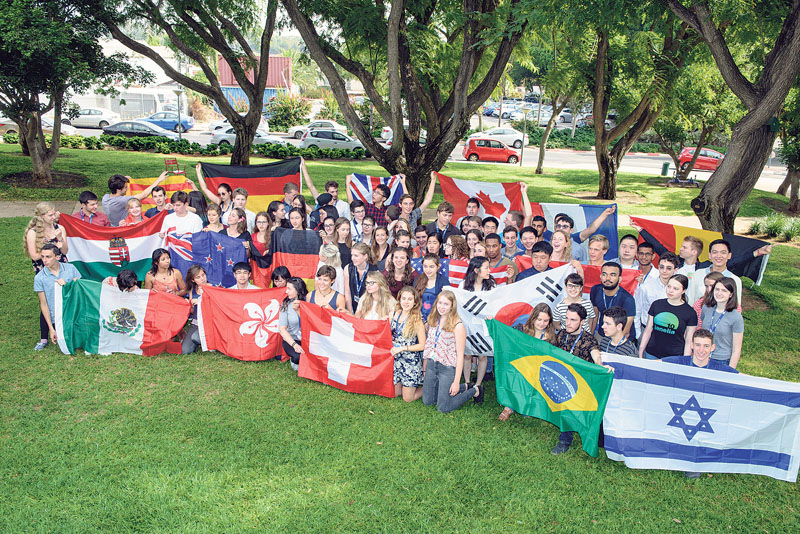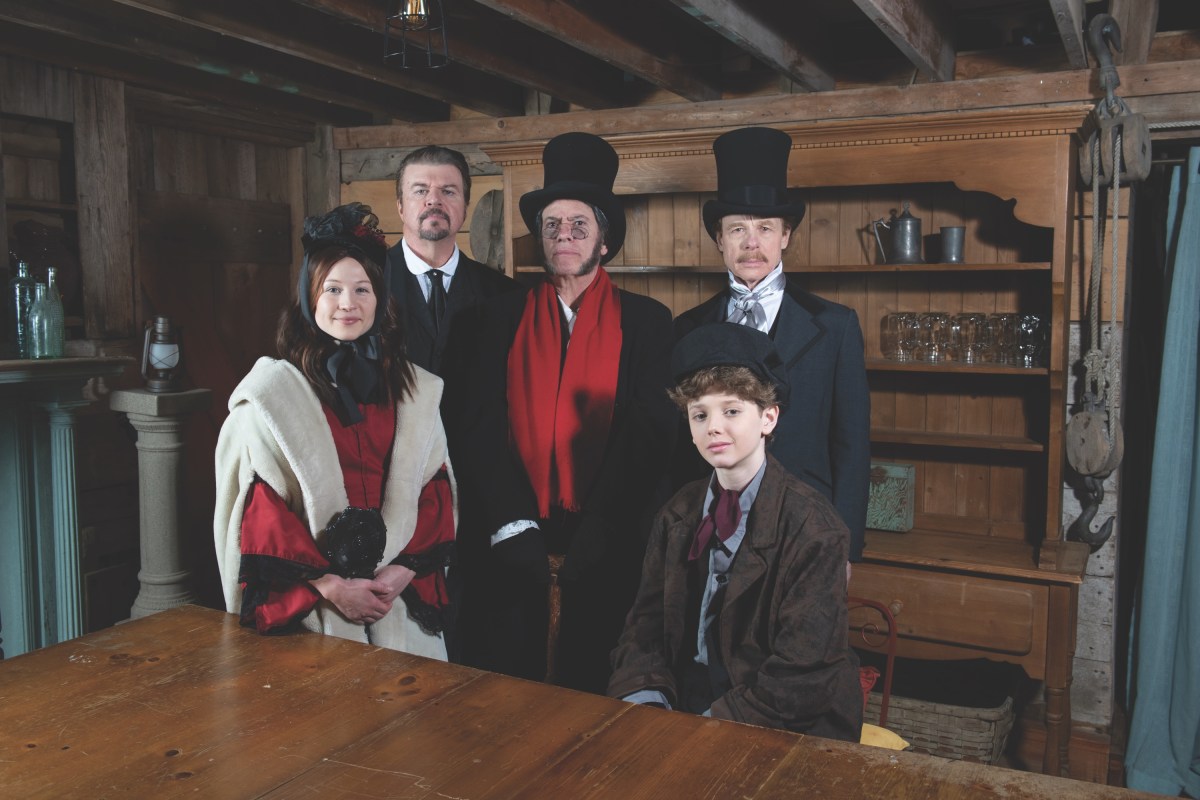
Talia Blum, a recent grad of Plainview-Old Bethpage John F. Kennedy High School and a budding scientist, opted for something altogether different for her summer—a trip halfway around the world to participate in Weizmann Institute’s annual Dr. Bessie F. Lawrence International Summer Science Institute (ISSI) in Rehovot, Israel.
Blum, 17, was one of 19 youths selected to participate in the prestigious program from United States, and was offered a full, merit-based scholarship and the chance to not only conduct research with world-renowned scientists in biology, chemistry, mathematics and computer science, but to also experience the unique cultures and personalities of not only the county of Israel itself, but of fellow program participants, many of whom hailed from all corners of the globe.
“My experience in Israel was amazing. I was there for a month—the program lasted through the entire month of July—and I really felt like I got to experience so much of what the country had to offer,” Blum said. “I visited Israel when I was younger, so going back felt a little bit like going home. The country is definitely different from the U.S. in many ways—like language, the heat, geography—but it’s also one probably one of the most westernized countries in the Middle East, so there were a lot of familiar scenes.”
The Weizmann Institute of Science is one of the world’s leading scientific research institutions, with nearly 4,000 researchers working together and making groundbreaking strides in areas ranging from health and medicine, alternative energy, and space exploration. Blum applied to participate in their heralded ISSI program,and was stunned to discover that she was selected from a competitive and diverse array of candidates.
“When I opened the email telling me that I was selected, I was at a quiz bowl tournament, and I just remember being completely taken aback,” she recalled. “My interview had been only two days before and it was just such an honor to be selected.”
Blum has always had an affinity for science. While numbers were her first love, she soon found herself gravitating towards a more scientific and technological approach to her interests and successfully conducted her first experiment at an age where most youngsters are more interested in cartoons than physics.
“As a child, I was interested in math above everything else—I think the first time I remember being interested in science was when I was 7 or 8, when I learned how to make a steel nail into an electromagnet,” she said. “For a long time, I thought I was only interested in computer science and engineering, but I’ve recently started exploring other fields like neurobiology, physics and nuclear science. I don’t really think it’s possible for anyone to pinpoint one single exact field of science they’re interested in, since everything is so interconnected.”
Having graduated high school last year, Blum is currently enrolled at the Massachusetts Institute of Technology and is planning on studying computer science, engineering and neuroscience, interests that were cultivated by her extensive work in Israel, she said.
“While in Israel, I worked on a neurobiology project, where I studied retinal ganglion cells—a specific type of neuron—in the mouse retina,” she said. “My lab experience was amazing, my mentor Lior Pinkus and all of the other graduate and postdoctoral students in Dr. Michal Rivlin’s lab were so welcoming and helpful.”
But her experience with ISSI in Israel went far beyond just rolling her sleeves up in the lab. Blum noted that she quickly forged close and lasting relationships not only with her mentor, but also with her fellow classmates—many who hailed from countries all over the planet—leaving her changed for the better afterwards.
“The people I met in Israel had a huge impact on me. I spent my month there connecting with people from all over the world. I made friends from the UK, Germany, Mexico, Hong Kong, South Korea, Brazil, Canada, Switzerland, and so many other countries around the world, and they were not only amazing friends, but also some of the most brilliant people I’ve ever met,” she said. “ISSI also took us on trips around the country, so I had the opportunity to spend a week hiking in the Negev Desert in places like Masada and Ein Gedi, snorkel in the Red Sea, swim in the Dead Sea, visit Jerusalem, visit the Baha’i Gardens, have dinner in a Bedouin tent, and hunt for scorpions under UV light, as just a few examples of the myriad experiences I had.”
After Blum’s time at the Weizmann Institute’s Israel campus, during which she endeavored to keep in regular touch with her supportive family back home in Plainview, she said that it’s not only changed how she looks at science, but also the world itself as a whole.
“The Weizmann Institute is so uniquely welcoming and innovative, and it really influenced how I look at science and science research,” she said. “My experience working with Lt. Lior Pinkus and how welcoming and supportive the community in Dr. Michal Rivlin’s lab and the neurobiology department at the Weizmann Institute has profoundly influenced my life. I now look at the world through new knowledge of my visual system, and knowing more about the world from my new friendships with people from all around the world.”
“I returned in the first week of August,” Blum continued. “It felt good to be home again—and not in 110 degree heat every day—but I do miss being in Israel with all of the friends that I made.”




























